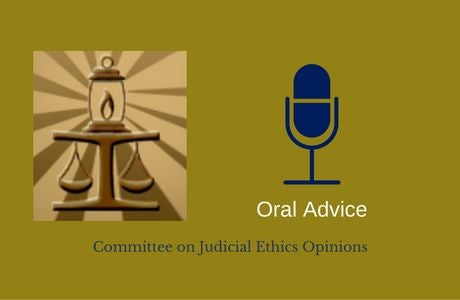Supreme Court Committee Issues Advice About Serving as a Rotary Officer
A state Supreme Court committee today posted a summary of oral advice given to a retired judge seeking to serve as a youth protection officer for a local Rotary International district. The retired judge regularly sits on assignment through the Temporary Assigned Judges Program in the same courts where the judge is a member of the Rotary district.
In a summary of the advice, the Supreme Court Committee on Judicial Ethics Opinions concludes that service as a Rotary district youth protection officer is not permitted under the Code of Judicial Ethics because the qualifications for the position include legal experience and the duties include providing advice about the law.
Judges may serve as an officer of a civic organization, so long as service is as a nonlegal advisor. Practicing law, which includes providing legal advice, is prohibited for judicial officers, including retired judges active in the Temporary Assigned Judges Program.
Judges are also prohibited from serving in civic organizations that will frequently be involved in proceedings in the judge’s court. The possibility that the youth protection officer could be called as a witness or participant in any proceedings involving the Rotary district’s youth programs compromises the appearance of impartiality if the officer is a retired Temporary Assigned Judges Program judge primarily assigned to cases within the Rotary district.
Finally, the committee concludes that any participation by the judge in the role of district youth protection officer could impermissibly advance the interests of Rotary because of the judge’s title. (Cal. Code Jud. Ethics, canons 2C(2), 4A(1) & (4), 4C(3)(b) & (c), 4G, 6B & C.)
"As well-meaning as protecting Rotary youths might be, judges can't give legal advice or allow their title to benefit others, and this includes retired judges in the Temporary Assigned Judges Program," said committee chair Justice Ronald B. Robie.
About the Committee on Judicial Ethics Opinions (CJEO)
The Committee on Judicial Ethics Opinions is a 12-member advisory committee that includes appellate justices, trial court judges and commissioners. The committee is appointed and authorized by the California Supreme Court, but its work is independent of the court, the Judicial Council, and all other entities. Its opinions are advisory and do not necessarily reflect the views of the California Supreme Court or any other entity.
The committee issues formal opinions, informal opinions, and oral advice on proper judicial conduct pursuant to the California Code of Judicial Ethics and other authorities.


